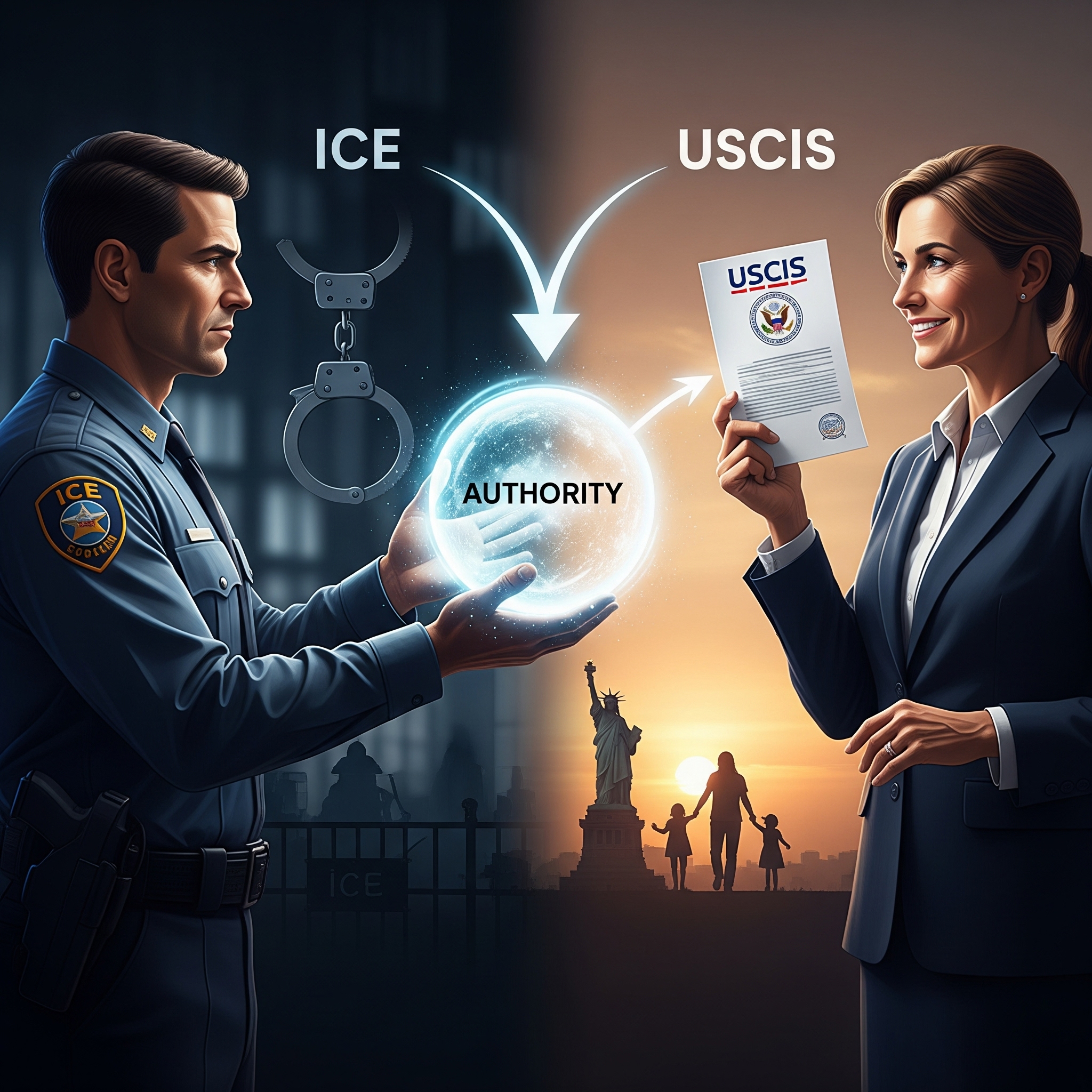DHS Delegation 15006: A New Era for USCIS Enforcement Authority
Authored by Wendy R. Barlow, Esq.

On August 6, 2025, the Department of Homeland Security (DHS) issued Delegation of Authority 15006, a significant directive that shifts enforcement powers to U.S. Citizenship and Immigration Services (USCIS). This change marks a crucial development in immigration law, particularly for individuals navigating the U.S. immigration system. Previously, these enforcement actions were primarily handled by U.S. Immigration and Customs Enforcement (ICE) and U.S. Customs and Border Protection (CBP).
What’s Changed?
Delegation 15006 empowers the Director of USCIS to take on new, substantial enforcement responsibilities, including:
-
Ordering expedited removal: This allows USCIS officers to remove certain noncitizens without a formal hearing before an immigration judge. This authority is limited to specific circumstances and individuals who have not been paroled or admitted into the U.S.
-
Issuing orders of arrest and removal: USCIS officers can now issue warrants for the arrest and removal of noncitizens, a power that was previously more associated with ICE.
-
Detaining noncitizens: The delegation grants USCIS the authority to detain noncitizens who are subject to these enforcement actions.
This delegation supersedes and replaces a portion of an earlier directive, DHS Delegation 0150.1, from June 2003, reflecting a modernization and reorganization of responsibilities within the department.
What Does This Mean for You?
The delegation of these enforcement powers to USCIS means that the agency is no longer solely focused on adjudicating immigration petitions and benefits. It now has a dual role, blending its traditional service-oriented functions with law enforcement.
For immigrants, this change is significant because it introduces a new layer of complexity and potential risk. An individual who may have previously interacted with USCIS in a purely administrative context could now face enforcement actions from the same agency.
This shift underscores the importance of being prepared and having expert legal counsel. Navigating the immigration system requires a deep understanding of these changing authorities. We at Cohen, Tucker + Ades are committed to keeping our clients informed and providing the guidance needed to successfully navigate the new landscape created by DHS Delegation 15006.
Sources:
DHS Delegates Enforcement Authority to USCIS Director | AILA
Not sure which option is right for you? Request a confidential consultation today.

